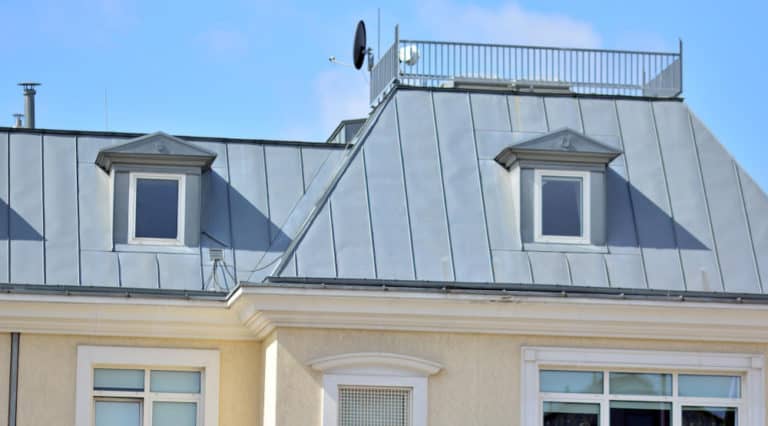
Lead Roof Work: A Flexible and Durable Option for Your Home
Lead has been considered a traditional roofing material for many years. Lead roof work is more commonplace on older buildings, and there are mass produced lead products that can offer a precision finish for both commercial buildings and residential homes.
Lead Roof Applications
Lead is a durable, flexible and recyclable material for many roof applications. Lead roof work can include sheet roofs, box gutters, chimney gutters, dormer side cheeks, flashings and slates for flue piping penetrating a tile, slate or flat roof. These roofing materials tend to offer a lifespan of over sixty years, but there are examples of lead roofing materials lasting over a century. There are several types of lead roof work including:
- Milled Lead: Milled lead has been used more frequently in recent years and is a popular choice where thin lead flashing is needed. Milled lead has also been increasingly used on house extensions and public buildings.
- Sand Cast Lead: This is the traditional form of lead work, based on the methods used by Romans throughout history. This means that sand cast lead can be found in ancient buildings including churches, mansions or even English Heritage buildings. Rainwater systems and ornamental features were produced with sand cast lead in the past, and this tradition is still in use today.
- Machine Cast Lead: Machine cast lead has been used a great deal throughout the last thirty years. This type of lead work tends to be the cheapest and can be cast in a very thin form to allow small amounts of lead to be used across an entire project.
The Benefits of Lead Roof Work
Lead roof work offers a number of benefits, making it a viable option for a variety of applications. These benefits include:
- Long Lifespan: Lead roofing offers a considerable lifespan. While most common roofing materials are expected to last between ten and twenty years, lead can last over fifty years. As mentioned above, there are still lead roof examples around England that date back over a century.
- Corrosion Resistance: While there are some roofing materials, such as aluminium, that are designed to be rust proof, very few materials can match the corrosion resistance of lead. This durability is one of the main reasons why lead roof has such a long lifespan, providing the reassurance of a watertight roof to protect your home for decades.
- Flexibility: Lead is also a very flexible material, so it can be used as a highly effective sealant where a flue penetrates a tile, slate or another type of roof, where a dormer meets the roof. The flexible characteristics of lead allow the roof to have a complete seal and prevent any water intrusion causing damage to the roof materials or inside your home.
If you are unsure whether a lead roof is the right choice for your property or are in need of lead roof work repairs, you should speak to us. Our recommended team of experienced professionals has expertise in lead roof work, and would be delighted to answer any queries or questions you may have.
Need a Roofer?
Popular Local Roofers
Need a Roofer?
Recent Reviews About The Roofers
Overall Rating:
Based on 511 reviews
Was good value for money, done work when said very efficient would recommend
Jayne
just had my roof done new felt / battens chimney removed,new ridge by a very professional crew of 5 everything done to a high standard. i would recommend mano lee with out hesitation.
stephen dobbins
The roof of a flat we own was letting in water. Contacted roofcare Swansea, Manrica came up the same day and with in 2 days the roof was stripped, new under sheet and tiles relayed.
Garry
Prompt & courteous response with sound advice. Will use C R S Roofing for any other future needs.
Kenny MacKenzie
Thanks for completing the flat roof job on friday. It was done to an exceptionally good standard… My husband is very satisfied with it and all the dealings with you have been very professional. Thank you again.
Leah
Our home was in need of roofing replacement. We were very happy with the complete job and follow up by the team at Better Choice Roofing. We have gotten a lot of compliments from neighbors and even passerby on the appearance and quality.
Monica
Better Choice Roofing did an amazing job replacing my roof and gutters. They were responsive, communicative, professional, price matched another estimate I had gotten, and got the job done in a timely manner. I highly recommend this company!
Toni
They did a great job! Very responsive and knowledgeable! Installed my roof and gutters. They were wonderful to work with!
Aaron
I had my garage re roofed by Fred and they were brilliant. They were very professional from start to finish and the garage roof is now watertight and looks amazing. Fred have done other work near me and it all stands the test of time.
Joseph
My Trusted Expert Guarantee
Experts Have Been Vetted & Approved